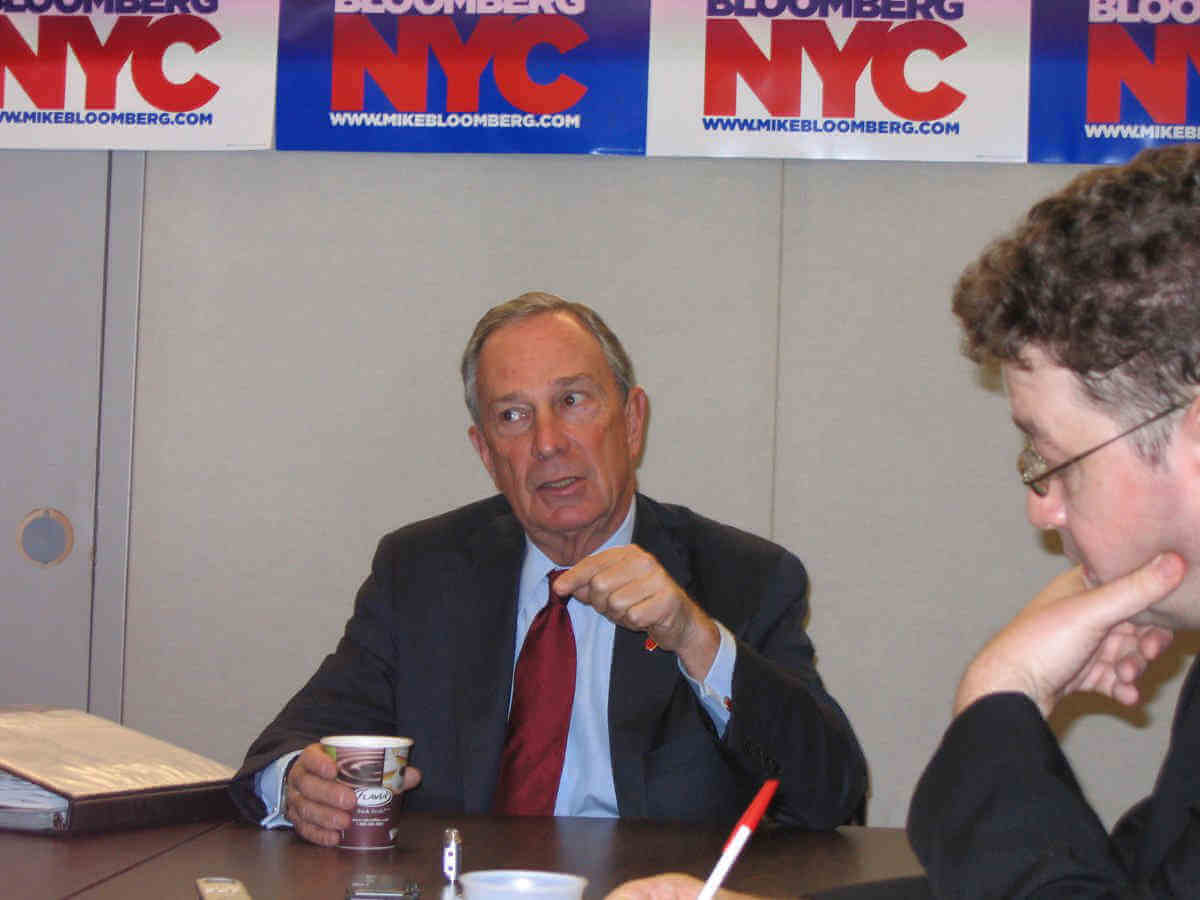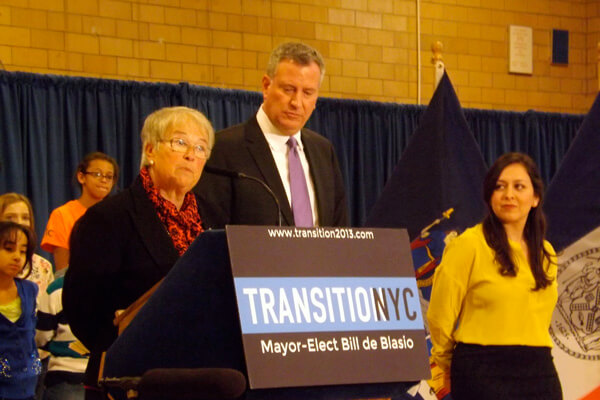Reached for comment about Michael Bloomberg seeking to become the Democratic nominee for president, Dan Tietz first let out an audible groan upon hearing the former New York City mayor’s name.
The news broke on November 7 that the billionaire was filing papers in Alabama to participate in the Democratic primary in that state. Some published reports suggested this meant he was entering the race while others indicated that Bloomberg, 77, had not made a final decision, but had to meet a filing deadline to participate in Alabama’s March 3 primary next year. If social media commentary is any indicator, the news was not received well among LGBTQ folks who are engaged in politics and activism.
“The only difference between him and Giuliani was he didn’t stick a finger in your eye,” said Tietz, who is currently the treasurer of the Lambda Independent Democrats, an LGBTQ political club in Brooklyn. Tietz has a long history in Democratic Party politics and running or working in social services agencies in New York City.
Bloomberg was the city’s mayor from 2002 through the end of 2013 and he continued many of Giuliani’s policies, though he was far less likely than Giuliani, the mayor from 1994 through 2001, to celebrate or defend policies deemed objectionable in some communities. Bloomberg also used his billions to effectively buy the silence of advocates who previously criticized Giuliani with large donations from his foundation.
Like Giuliani, Bloomberg continued to battle with the non-profits that were serving people with HIV. Bloomberg made cuts to the parts of the city budget that served that population. He also cut HIV prevention dollars at a time when new HIV infections were increasing among young black and Latino gay and bisexual men.
“There is a narrative about his success, but there are many things that didn’t go well for people who needed help,” Tietz said.
Bloomberg was a Democrat for many years, but ran for mayor as a Republican. While he was the leading financial supporter of Republicans in the State Senate, mostly to prevent tax increases on the wealthiest New Yorkers, he generally presented himself as a non-partisan technocrat who was interested in balancing budgets and effectively delivering services to city taxpayers.
Bloomberg continued to use the police to drive the homeless from public view, a practice that Giuliani ran on during his race for mayor in 1993. The police practice of addressing minor infractions, such as stealing subway rides or drinking in public, on the belief that addressing those minor crimes stopped more serious crimes began under Giuliani, but exploded under Bloomberg. Police were required to write a certain number of summons every month. Stop and frisk began under Giuliani. There were just over 97,000 stops in 2002 and 685,724 stops in 2011. In every year for which there is data, police mostly stopped young African-American and Latino men and well over 80 percent had committed no crime.
Bloomberg also continued Giuliani’s attacks on city porn shops, but in 2008, undercover vice officers began the practice of luring gay and bisexual men into consensual sex encounters in the shops then offering to pay the men after they agreed to the sex. The men were then arrested for prostitution. The shops were sued in nuisance abatement lawsuits that cited the arrests and the lawsuits were intended to shut them down.
Police enticed older men with younger officers, and of the 41 men police known to have been arrested for prostitution in six porn shops, 18 were Latino and 14 were African-American. Seven were white and two were Asian. Altogether, 78 percent of the men arrested were either Latino or African-American. While 14 of the 41 had criminal records, just two of the 41 had prior arrests for prostitution.
After Gay City News began reporting on these porn shop arrests, criminal cases were dismissed and some of the nuisance abatement lawsuits were ended.
While Bloomberg earned his reputation as an accomplished technocrat by consistently producing city budgets that had surpluses, what is rarely noted was that he saved billions of dollars in labor, benefits, and pension costs by not negotiating new contracts with the unions that represented city employees. The de Blasio administration has since signed those contracts.
For years, Bloomberg refused to take a position on same-sex marriage, but after Doris Ling-Cohan, a state judge, issued a 2005 opinion ordering New York City clerks to issue marriage licenses to same-sex couples, he endorsed marriage even as he announced that the city would appeal Ling-Cohan’s ruling. She was overturned by an appellate court in late 2005 and the Court of Appeals, the state’s highest court, upheld the appellate court in 2006. It was five years later that gay and lesbian couples won the right to marry in the State Legislature.
Bloomberg could upend the Democratic primaries. Currently, at least two of the leading candidates, Bernie Sanders and Elizabeth Warren, are embracing positions like universal healthcare and increasing taxes on the wealthiest Americans. His supposedly more moderate positions could appeal to some voters, who are now widely assumed to support former Vice President Joe Biden and, in smaller numbers, South Bend, Indiana, Mayor Pete Buttigieg.
“With Trump in office, our country is starving for a progressive Democrat,” said Allen Roskoff, the president of the Jim Owles Liberal Democratic Club. “Bloomberg has shown that he has no center. He has party-hopped and given obscene amounts of money to Republicans.”

































